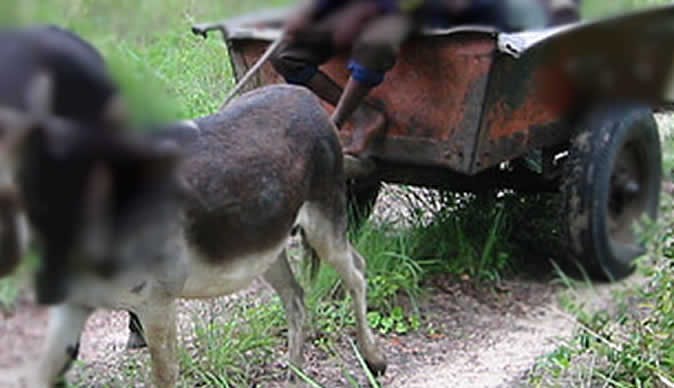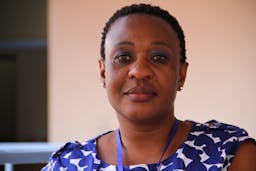The Day Chioniso Died
May 28, 2019
Story

Picture courtesy of http://bulawayo24.com/index-id-news-sc-national-byo-46394.html
By the time the scotch-cart reached Nyahuni clinic Chioniso had run out of screaming energy. Sweat and tears were streaming down her face and body. We had spent two hours on the road from the village to the only clinic in this farming community, arriving at 3am. The village midwife had tried to help Chioniso give birth, but the cervical dilation was not there despite the contractions, her body was not ready for child birth.
It took us another hour for the scotch-cart 'driver' to fetch nurse from her house. By the time nurse arrived, she pronounced Chioniso dead. The memory of burying Chioniso together with her heavy pregnancy still haunts us today as a community, and as women. Chioniso was fifteen years old when she was forcibly married off to an old church leader by her parents in exchange for food and cows.
The above story which sounds fictitious is everyday reality in some parts of Zimbabwe. This country has one of the highest forced marriage prevalence rates in the world. As feminist activists, we have decided never to call it early marriage but early forced marriage because the girls, given their young age, can rarely make a free and informed decision about their marriage partner, the timing or the implications of this dubious patriarchal and one sided commitment. They are forced into marriage for material gain in the face of poverty, and sometimes because of strong social and cultural norms which normalise and drive this practice despite legislation in place.
On average, one out of three girls in Zimbabwe will be married before their 18th birthday. In 2011, about 31% of the women aged 20-24 were forcefully married before age 18. Prevalence is highest in Mashonaland Central (50%), followed by Mashonaland West (42%), Masvingo (39%), Mashonaland East (36%), Midlands (31%), Manicaland (30%), Matabeleland North (27%), Harare (19%), Matabeleland South (18%), and Bulawayo (10%). Once girls in Zimbabwe are married, only part of them (36.2%) are using contraception in spite of their needs to space their child bearing time, and this is owing to religious and traditional beliefs, poverty and lack of access to information of services. (UNFPA: 2012).
Researched reality is that child marriage occurs more frequently among girls who are the least educated, poorest and living in rural areas. In 2011, women aged 20-24 and living in rural areas were about twice as likely to be married/in union before age 18 than their urban counterparts. This urban-rural divide has remained at roughly the same level since 2006. Girls from the poorest 20% of the households were more than 4 times as likely to be married/in union before age 18 than girls from the richest 20% of the households. (UNICEF: 2011)
Zimbabwe has been rated number 39 out of the 41 nations with the highest rates of child marriages globally, and the fear is that if child marriages are not curbed through legislative measures, the figures could escalate with girls continuing to be deprived of their childhood. The United Nations Children’s Fund (Unicef) report similarly shows that states that if child marriage was not outlawed by countries practising it by 2030, the number of child brides would grow from 14, 2 million girls in 2010 to 15, 1 million girls in 2030.
Zimbabwe has a gender sensitive Constitution that protects children. What is lacking is enforcement. The Ministry of Women Affairs, Gender and Community Development (MWAGCD) is working with UN Women, the Women’s Parliamentary Caucus and civil society to align laws such as the Customary Marriages Act, the Domestic Violence Act and others that have to do with marriage and sexual age of consent with the new Constitution to fully protect girls against forced early child marriages.
We however still have a long way to go because the Constitution only started being operational in May 2013 and has not really taken effect to the extent that several laws — including those that deal with children’s rights — have not been aligned yet. Government needs to invest resources and to focus on implementation of those laws if girls were to be protected from forced early child marriages. Focus should also be on educating traditional leaders, religious leaders and cults to ensure they understand the regulatory framework with regard to child marriage. The police and the Ministry of Justice also need to work hand in hand with the women’s groups and the MWAGCD to ensure enforcement of laws.
The Ministry of Education must also work hard to ensure that all girls are in school, bringing to the attention of the police all parents who deny their girl children an education, but most of all government of Zimbabwe must ensure education is free for all girls. “Being in school can support the perception that girls are still children and hence not marriageable. Schooling helps a girl develop social networks and acquire skills and information, all of which contribute to her ability to communicate, negotiate for her best interests and participate in decisions that affect her life.” (UNFPA: 2012)
Practically, for NGOs doing women’s rights work, girls need life skills training, provision of safe spaces to discuss their future, information about their options, development of support networks, so that they are equipped with knowledge and skills in areas relevant to their lives including sexual reproductive health, nutrition, and their rights under the law. Katswe Sisterhood, an NGO funded by UN Women to do Sexual and Reproductive Health Rights in rural areas is working hard to mitigate this problem by providing education on child rights, SRHR and maternal health rights. The dilemma and challenge is however how to avoid being misunderstood. How do you promote maternal health rights of girls below 14 years without making the men with deformed patriarchal masculinity believe that rape is legitimate because help will always come?




